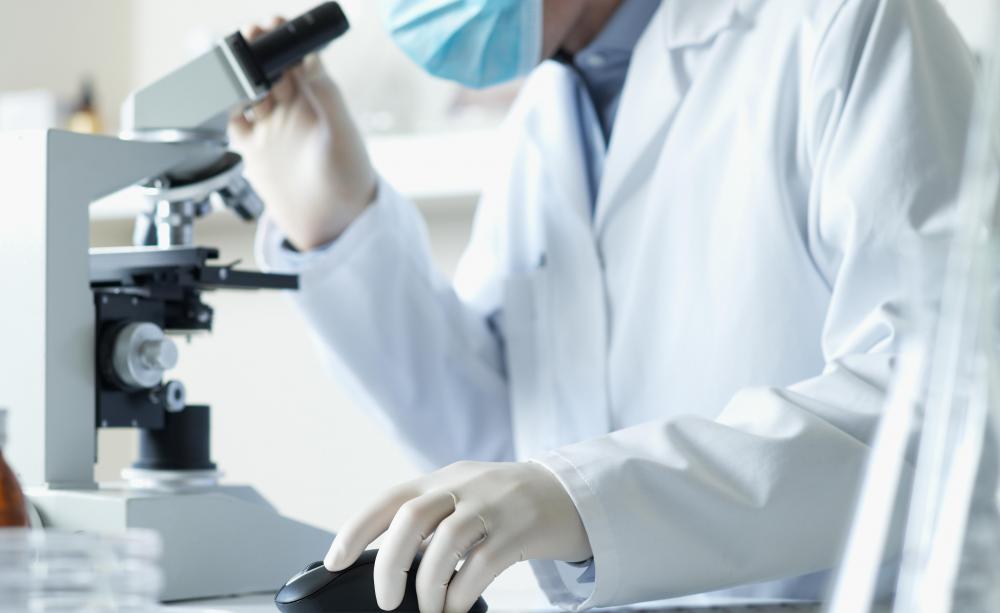At PracticalAdultInsights, we're committed to delivering accurate, trustworthy information. Our expert-authored content is rigorously fact-checked and sourced from credible authorities. Discover how we uphold the highest standards in providing you with reliable knowledge.
What are the Different Laboratory Technician Jobs?
When considering laboratory technician jobs, most people may tend to think of someone who works in a hospital. In addition to medical laboratory technician jobs, however, there are dozens of different lab tech jobs in other venues. Lab technicians work, for example, in agricultural and food science, and forensic science. They also work in biology, chemistry, environmental science, dentistry, forensic science, forest conservation, geology, and nuclear science. To qualify as a laboratory technician, one must have either a two-year associate's degree or a certificate from an accredited college. Job prospects and pay can be excellent, depending on one's experience, educational background, and job responsibilities.
In the medical field, more than half of all clinical laboratory technicians work in hospitals. The other 50% work in doctors' offices, independent medical laboratories, and clinics. Some clinical laboratory technician jobs involve preparing samples of tissue and body fluids, identifying bacteria and other organisms, matching blood types, checking a patient's response to treatment, and using medical laboratory equipment. Other lab technicians specialize in just one area, such as taking blood samples as a phlebotomist or cutting and staining tissue specimens as a histotechnician. Medical laboratory technicians work under the supervision of a laboratory technologist or laboratory manager.

Agricultural and food science laboratory technicians generally work under the supervision of an agricultural or food scientist. Those working in agricultural laboratory technician jobs may do research or experiments to find ways to grow food more efficiently or making crops resistant to insects. Food science laboratory technicians may research the safety of food additives. Both agricultural and food laboratory technician jobs involve doing analysis, recording data, keeping lab equipment clean and sterile, and keeping track of lab inventory.

Forensic science laboratory technicians work with forensic scientists collecting and examining evidence from a crime scene. Those working in these types of laboratory technician jobs often test hair, tissue samples, firearms, glass, or other physical evidence, and prepare reports that assist detectives or other law enforcement officials responsible for investigating a crime. Sometimes a forensic lab technician will be called to testify in court about his or her laboratory findings. Another crucial part of the forensic lab technician's job is the ability to handle evidence — the chain of custody — in a way that will not contaminate the specimens or jeopardize the investigation. They work closely with other medical experts, such as the medical examiner or DNA specialists, and are a crucial part of the crime-solving team.
AS FEATURED ON:
AS FEATURED ON:















Discuss this Article
Post your comments